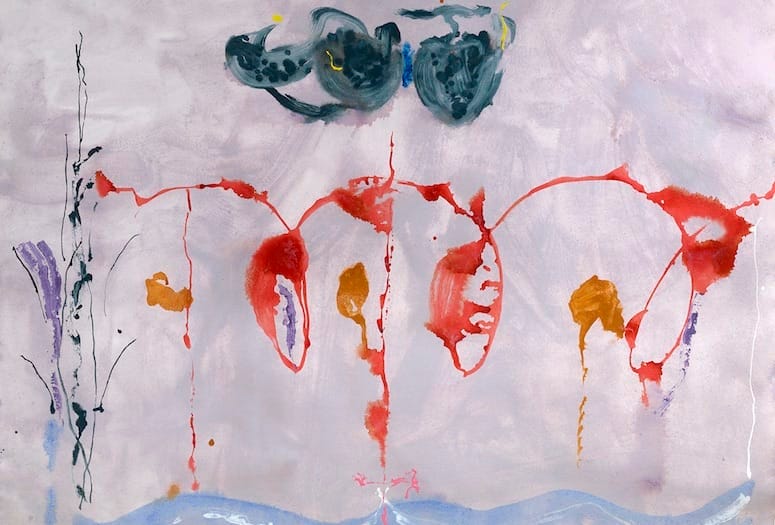identity and its discontents
Helen Frankenthaler, Aerie, 1995
The first thing I noticed about S was that he was a third culture kid like me. His dad was American, his mom was South African, he had grown up in London, most of his family lived in Australia. No one who was British thought his accent sounded British. Meanwhile I was Chinese-Canadian-American—I had grown up going to Chinese school on Saturdays but my writing ability was rudimentary and I didn’t watch any shows in Mandarin. My parents were half-hearted tiger parents—I look back and think that they were mostly pantomiming what they thought strict parenting was. When I got into a good undergraduate business school at an okay Ivy they were happy, a little bemused. At 17 I wanted to work at a hedge fund. I was interested in money. I had an older boyfriend in high school, a white guy who’d grown up in, was it Virginia?—I don’t remember anymore—and liked prep, wore $400 cardigans, inducted me into some semblance of cultural fluency. War Wong Kai. Wes Anderson. Murakami. He liked me because I could write poetry, was clever, had never had sex. A couple years later we broke up. I didn’t understand myself yet. I knew already that I had great instinct. That’s always been my thing: I have superb taste not in objects but in books, in people, in timing. Even back when I was insecure about everything I understood this about myself. It felt like the only real thing.
You might be confused where this is going. I’m trying, by relaying details about my life, to say something about my thoughts on identity: how sometimes I think it’s real and mostly I think it isn’t. On one hand, I believe that identity is a costume. I mean who really cares if you play video games or watch Better Call Saul or snort ketamine on the weekends. All these things are completely fungible. Here are some things that people occasionally appreciate about me: I know how to dress for any given occasion, I know what to order at any given restaurant, I can tell you about Helen Frankenthaler’s life in great detail. In my opinion, these are fake things to like about someone. They’re party tricks. But what are the real things? That I’m female, Asian, that I like to read? That I like myself, trust myself—that I don’t think of myself as a good person, but I do the right thing given enough time?
How do I know these are the real things that matter? I don’t, I guess. I couldn’t tell you what’s important about me. I think our conception of identity is a neoliberal con job, a construct that mostly exists to make people consume. I don’t share my beliefs most of the time because they’re threatening to the American achievement complex. Many people I know are hyper-individualistic—a Randian worldview centered on the triumph of the self over the self.
Keep reading with a 7-day free trial
Subscribe to bookbear express to keep reading this post and get 7 days of free access to the full post archives.


